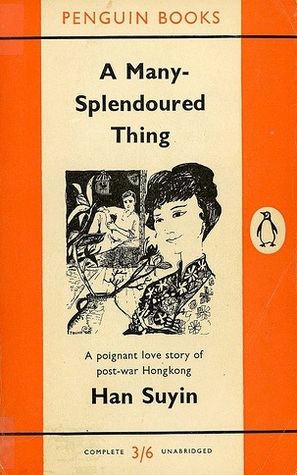We met by chance in Peking in July 1956 and took to each other immediately.
I am 92 years of age today.
Over the last 70 years of my life, I have preserved the letters I received from
In this column I am writing about my fifty-year-old friendship with Han Suyin. Her novel, A Many Splendored Thing is one of the great and true love stories of the 20th century. It was made into a film in 1955. It was shot in Hong Kong. The novel became a world best seller. It was translated into a dozen languages.
Han Suyin was born in Peking in 1917. Her father was Chinese and mother Belgian. By profession, she was doctor. By choice, a writer. We met by chance in Peking in July 1956 and took to each other immediately. At the time she was a stunning beauty.
She was living in Hong Kong. She was visiting China for the first time after the 1949 revolution led by Mao Tse Tung (old spelling).
In the decades to come, we met in various parts of the world. In 1959, she fell in love with an Indian, Colonel Vincent Ratneswamy. He was an engineer, helping the Nepalese to construct roads. It was love at first sight. Her second novel, The Mountain is Young has Ratneswamy as the hero—of course under a fictional name. Vincent was a Roman Catholic, married and father of a son. Divorce among Roman Catholics is not a simple exercise.
Eventually, after many years, the divorce went through. Even before the divorce Suyin and Vincent were living together. She divorced her British husband when she was a practising in Singapore.
Year by year her fame grew. She got to know Jawaharlal Nehru—he had read her first book, Chunking Dairy, while in prison in Ahmednagar between August 1942 and April 1945. She also knew Chou En Lai. I introduced her to Indira Gandhi, M.F. Hussain, Mulk Raj Anand and other friends. As we, she, my wife Hem and I got very intimate, I noticed a chink in her armour. She was restless, confused, emotional, flexible, forever in search of a country she could call home. A captive of time, who lost her way time and again she made and unmade her life several times.
In Vincent Ratneswamy she found the anchor she needed. They settled down in Lausanne in Switzerland in the mid 1970. Vincent died in 2004. She in 2012. I last met her in 2004 in Lausanne. Dementia was beginning to inflict her. She passed away in 2012 at the age of 95.
Here is a letter she wrote to my wife and me from Lausanne on 14th April 1977.
“My dear Natwar and Hem,
We shall be away in Yugoslavia from 9th evening of May, until about the 17th or 18th. I suggest you come on the ninth; we can reserve for you a charming little hotel, 70 francs for a double room for a night. In this way, I can show Hem all the flat and how to work things etc…. I am very happy to have you here, I only hope that, on another occasion to come, you will be my guests at our mountain resort, which is tiny, but very very beautiful.
I am writing ‘Phoenix Harvest’, which is the book about my life from 1949 to 1976. Had Chiang Ching (Madame Mao) come to power, I would have been in a terrible position because I would have to denounce her…. I did not like her, she did not like me. But this is not important. What was important was that from 1975 onwards I felt she could not be leader of China, because she did things in such a terribly arbitrary way.
I hope the friendship between India and China will go on prospering after all we have such clearly delimited zones of influence, and China is not interacted in extending beyond it. Japan, Korea, and Vietnam and may be the Philippines are China’s “zone”. India has had a wonderful and fantastic zone of cultural influence in the past and this is far more enduring than any other. I think Westerners do not understand how enduring and profound cultural influence is.
With much love from both of us to both of you.
Suyin”
****
I read Sanjaya Baru’s book, India’s Power Elite: Class, Caste and a Cultural Revolution, early in the week. It is brilliant and gripping. It will enthral readers. With an artist’s selectivity he has chosen the movers and shakers of our era with exceptional skill and sound judgement and balance.

